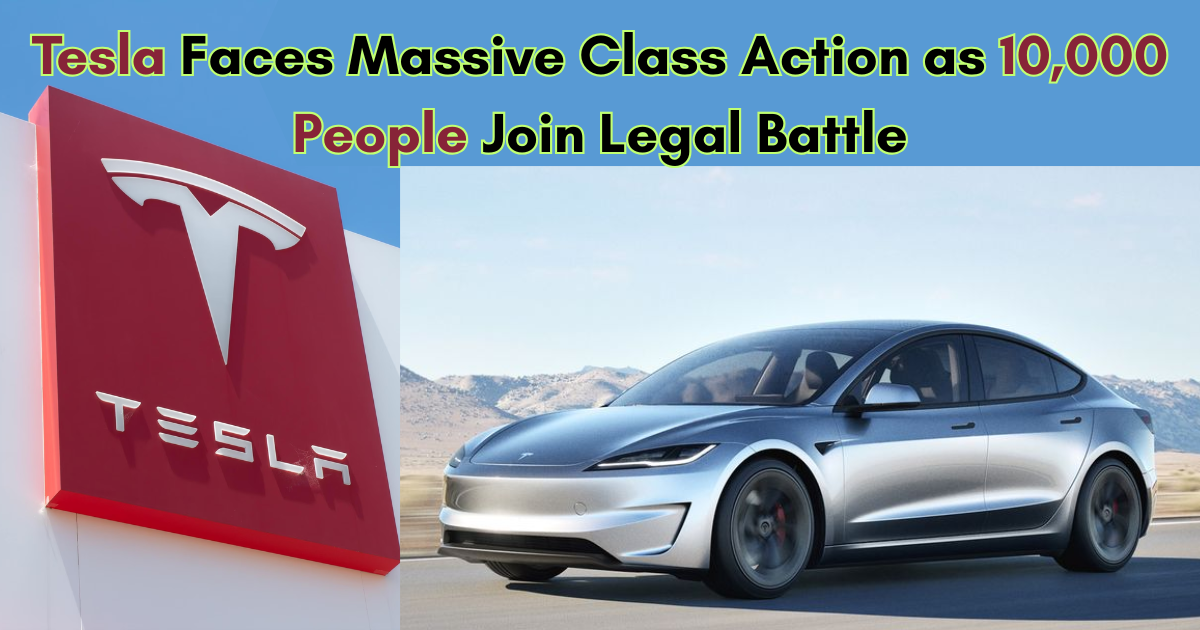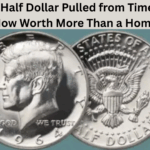Tesla Faces Massive Class Action as 10,000 People Join Legal Battle: Tesla is caught in a whirlwind of controversy as approximately 10,000 Australian Tesla owners have joined a class action lawsuit against the company. The plaintiffs claim their vehicles experience phantom braking, raising serious safety concerns.
Tesla Faces Massive Class Action as 10,000 People Join Legal Battle
The Tesla class-action lawsuit in Australia marks a significant legal challenge for the renowned electric vehicle manufacturer. Approximately 10,000 Tesla owners have joined forces, accusing the company of neglecting serious safety concerns associated with their vehicles.

This lawsuit comes at a time when Tesla’s sales are dipping and consumer trust in the brand is waning. How Tesla navigates these legal waters could have far-reaching implications on its reputation and the future of autonomous vehicle regulations.
Tesla class action lawsuit in Australia swells to 10,000
with a market cap that hovers close to a trillion dollars. Tesla is by far the world’s most valuable car company, despite selling a fraction of the vehicles that some of its competitors do. Tesla justifies its valuation by saying that it is much more than a car company. Everything from its full self-driving tech to its driver data and AI systems makes it much more valuable than your average car company.
A U.S. consumer lawsuit over phantom braking has spread to Australia, where about 10,000 Tesla owners have joined a class action lawsuit against the company.
Understanding Phantom Braking in Tesla Vehicles
Phantom braking is a perplexing issue that has been notably observed in some Tesla vehicles. It refers to the phenomenon where a car suddenly applies its brakes without any apparent reason, despite the driver’s intention to maintain or increase speed. This unexpected braking can present serious safety hazards, particularly when driving at high speeds or in heavy traffic.
The Class action lawsuit in Australia involving approximately 10,000 Tesla owners brings to light the critical issue of phantom braking within the company’s portfolio. This legal challenge is echoing similar issues reported in the US.
Although more than 10,000 owners have signed on to the class action, Australia’s federal infrastructure department says it has received only six formal complaints about phantom braking. That discrepancy raises questions about the reporting process.
Scope of the Class action lawsuit in Australia
The class action lawsuit against Tesla in Australia, involving approximately 10,000 owners, showcases significant legal and safety concerns around the company’s Autopilot and the alleged issue of phantom braking. This problem refers to a situation where Tesla vehicles brake suddenly without driver input, posing a major safety risk and affecting resale values. This lawsuit could pave the way for new legal precedents regarding how tech malfunctions in autonomous vehicles are handled legally, both in Australia and globally.
Impact of Phantom Braking on Tesla’s Reputation and Sales
Tesla’s reputation, once synonymous with innovation and forward-thinking technology, is facing scrutiny due to the phenomenon of phantom braking. This issue, which causes a vehicle to unexpectedly brake without driver input, has led to a class action lawsuit in Australia involving about 10,000 Tesla owners. As Tesla grapples with these legal challenges, the case highlights significant consumer concerns about the reliability of Tesla’s Autopilot and other advanced driver-assistance systems.
Legal and Economic Implications for Tesla
The legal challenges facing Tesla, particularly in regard to the class action lawsuit over phantom braking in Australia, have significant implications for the company. As approximately 10,000 plaintiffs allege that their Tesla vehicles suffer from this issue, the legal proceedings not only carry the potential for substantial financial penalties for the automaker but may also lead to broader scrutiny of Tesla’s autonomous driving technologies.
Tesla’s bumpy 2025 is not getting any easier
Tesla sales dropped 16% year over year in April, according to a new report from Global Mobility. Americans bought 97,800 EVs in the month, a 4.4% decrease from the year prior. Since Tesla is the EV market leader with a 42% market share, the company’s struggles significantly affected the industry as a whole.
Conclusion
In this article we discussed Tesla Faces Massive Class Action as 10,000 People Join Legal Battle. The class action lawsuit in Australia involving approximately 10,000 Tesla owners brings to light the critical issue of phantom braking within the company’s portfolio. This lawsuit comes at a time when Tesla’s sales are dipping and consumer trust in the brand is waning.


